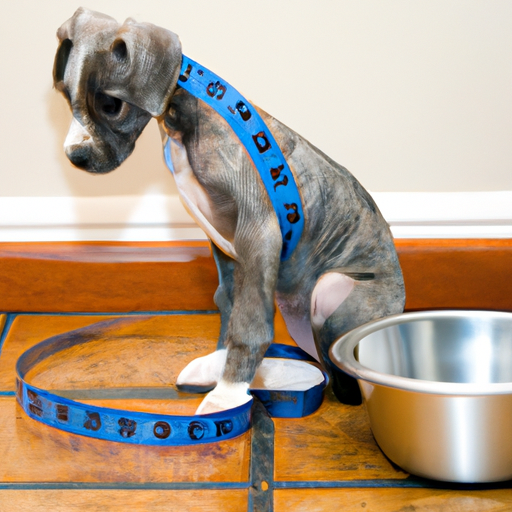As a devoted caregiver, you want nothing but the best for your puppy. But sometimes, it can be challenging to gauge whether you’re providing the right amount of food for your young pet. Here are some signs you may be underfeeding your puppy.
1. Unhealthy Weight
Your puppy might appear thinner than others of the same breed or age. If you can easily see or feel their ribs, spine, and pelvic bones, they might not be getting enough food.
Here’s a simple table to help you understand the ideal weight for some common breeds when they are three months old:
| Breed | Ideal Weight (lbs) |
|---|---|
| Labrador Retriever | 20 – 30 |
| German Shepherd | 15 – 20 |
| French Bulldog | 5 – 9 |
| Beagle | 10 – 15 |
2. Lack of Energy
If your puppy seems lethargic, sleeps more than usual, or doesn’t show interest in play, they might be undernourished. Puppies are naturally inquisitive and full of energy, so a lethargic demeanor could be a sign of underfeeding.
3. Poor Growth and Development
Your puppy should be growing and developing consistently. If they’re not gaining weight or growing as they should be, this could be a sign that they’re not getting enough to eat.
4. Poor Coat Condition
Just like in humans, a puppy’s hair can reflect their overall health. If your puppy’s coat is dull, dry, or thinning, it may be due to a lack of essential nutrients.
5. Constant Hunger
If your puppy always seems hungry, it might be because they’re not getting enough food. They might eat too quickly, act aggressive around food, or beg for more even after they’ve just been fed.
6. Stunted Growth
Your puppy should be growing rapidly. If they’re not, they might not be getting the nutrients they need. Check with your vet to see if your puppy’s growth is on track.
7. Behavioral Changes
Finally, if your puppy’s behavior changes—especially around food—this could be a sign of underfeeding. They might become food aggressive, anxious, or overly clingy.
8. How to Correct Underfeeding
The first step to correct underfeeding is to consult your vet. They can provide a proper feeding plan and monitor your puppy’s growth. It’s important to increase food gradually to prevent overfeeding.
Here’s a simple plan to start:
- Increase the amount of food by 10% each week.
- Monitor your puppy’s weight and behavior.
- Consult your vet regularly.
Frequently Asked Questions
Q: How much should I feed my puppy?
A: The amount of food your puppy needs depends on their age, breed, and size. It’s best to consult your vet for a personalized feeding plan.
Q: What if my puppy is still hungry after being fed?
A: If your puppy is still acting hungry after a meal, they might not be getting enough food. Increase their food intake gradually and monitor their behavior.
Q: How can I tell if my puppy’s growth is stunted?
A: A stunted growth can be difficult to identify. If your puppy isn’t gaining weight or growing as expected, consult your vet.
Q: Can underfeeding lead to long-term health issues?
A: Yes, underfeeding can lead to numerous health issues, including weak bones, poor immunity, and developmental problems. It’s crucial to ensure your puppy is receiving adequate nutrition.



